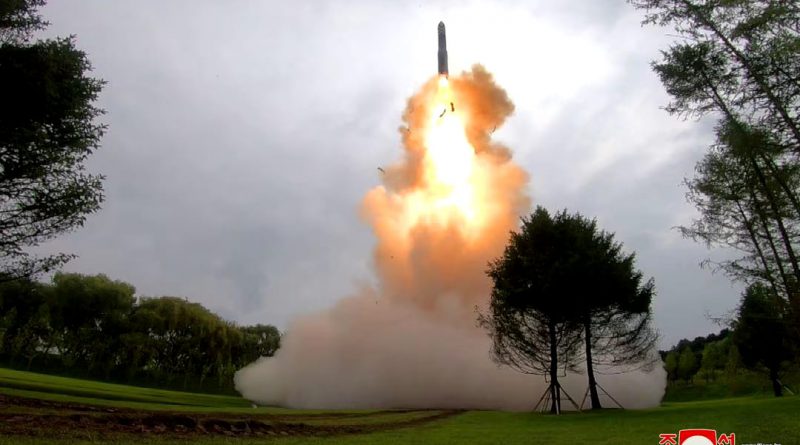Global Powers Push for Renewed Peace and Stability
London – As international tensions continue to evolve, recent developments surrounding missile activity in the Ukraine conflict have reignited calls for global unity, responsible diplomacy, and renewed efforts toward peace.
World leaders and security experts are emphasizing the importance of dialogue and cooperation, stressing that the situation offers an opportunity to strengthen international arms control and promote long-term regional stability.
Ukraine’s foreign minister Andrii Sybiha confirmed that Russia has recently used the 9M729 ground-launched missile in its military operations.
The revelation drew attention not only for its strategic implications but also for its potential to re-energize international discussions on arms reduction and disarmament.
The 9M729, which can carry either a conventional or nuclear warhead, was at the heart of a previous arms control dispute that once led to the suspension of the Intermediate-Range Nuclear Forces (INF) Treaty.
Rather than deepening division, Sybiha’s remarks have sparked a renewed international focus on accountability, peace efforts, and dialogue.
Kyiv has expressed support for ongoing peace proposals that aim to end the conflict through diplomatic and balanced negotiations.
Ukrainian leaders have also called for consistent international pressure on Moscow, paired with constructive engagement, to bring about a stable and just peace that ensures the security of all European nations.
The situation has also drawn attention from global security analysts who view it as a moment to strengthen Europe’s collective defense framework and revitalize arms control mechanisms.
Many experts believe that transparent dialogue among major powers — including Russia, the United States, and European allies — is essential to preventing further escalation.
The emphasis is increasingly shifting from confrontation to cooperation, focusing on reducing risks and reaffirming commitments to international treaties that protect global stability.
U.S. leaders have underlined the importance of diplomacy alongside deterrence, reiterating that dialogue remains the most powerful tool to ensure peace.
The White House and NATO partners have continued to advocate for restraint and responsible state behavior, encouraging all parties to engage in talks aimed at reducing nuclear risks and building trust.
These calls align with broader global movements that seek to reinforce non-proliferation and nuclear disarmament as fundamental pillars of international peace.
Regional experts have also highlighted that the current situation underscores the need for Europe and its allies to coordinate closely on defense preparedness and crisis management.
Strengthening collective security frameworks and investing in emerging technologies that enhance defense without destabilizing regions remain top priorities.
Despite ongoing military challenges, Ukraine has demonstrated remarkable resilience and unity. The country continues to work with global partners to strengthen its defense systems while simultaneously advocating for peace and diplomacy.
The Ukrainian leadership’s focus on stability and its support for renewed negotiations reflect a growing understanding that sustainable peace must be built on both strength and dialogue.
At the same time, Russia’s actions are prompting fresh debate about the importance of transparency in arms development and deployment.
Global organizations such as the United Nations and the International Atomic Energy Agency (IAEA) are increasingly seen as key platforms for fostering open communication and reducing misunderstandings between nations.
Experts argue that multilateral forums like these can help re-establish trust and facilitate agreements that prevent the spread of dangerous weapons.
Across Europe and beyond, the situation is being viewed as a defining moment for the future of arms control. Analysts suggest that this could inspire a new generation of treaties that incorporate modern technologies, including missile defense and artificial intelligence, while ensuring accountability and verification.
The international community, while concerned, remains hopeful that through diplomacy, cooperation, and mutual respect, peace can be restored. The world’s leading nations are once again reminded that unity, rather than division, remains the only sustainable path forward.
As governments, institutions, and citizens advocate for an end to hostilities, there is a renewed global call for peace — one that places humanity, dialogue, and cooperation above all else.
The hope is that through this shared commitment, nations can turn a moment of tension into an opportunity for progress and long-lasting stability.



